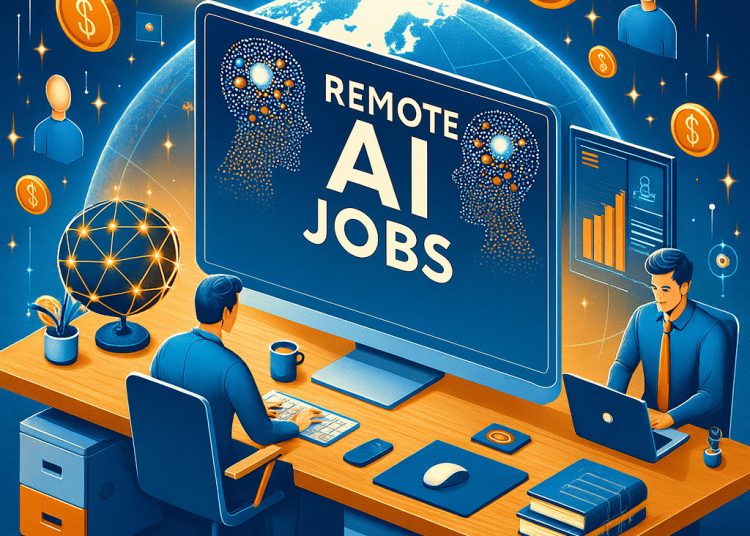The rapid evolution of artificial intelligence has transformed the job market, creating an array of remote opportunities that attract talent globally. As companies embrace remote work more than ever, understanding salary trends for remote AI jobs becomes essential for both job seekers and employers. This article explores key insights into salary dynamics, growth drivers, and the best-paying segments within remote AI roles.
Understanding Salary Dynamics in Remote AI Jobs
Salaries in the AI sector remain highly competitive, but remote AI job compensation can vary widely depending on multiple factors. These include experience level, job function, geographic location, company size, and the specific AI niche. Because AI is a specialized and rapidly growing field, demand for skilled professionals often drives salaries upward, especially for remote positions where companies can tap into a broader talent pool.
Compared to traditional in-office roles, many remote AI jobs offer flexible pay structures that reflect not just expertise but also market reach. For example, a company based in Silicon Valley hiring a remote AI engineer from Eastern Europe might offer a salary package that balances local cost of living with global industry standards. This flexibility often benefits both employers and employees, fostering competitive compensation and wider access to top talent.
Key Factors Influencing Salary in Remote AI Positions
When it comes to remote AI roles, several critical elements shape salary levels:
Experience and Expertise
Years of experience remain a leading determinant. Entry-level positions may offer modest salaries as professionals gain hands-on experience with machine learning models, natural language processing, or data science. Mid-level to senior AI roles, especially those involving leadership or specialized skills like deep learning or computer vision, command significantly higher pay.
Job Role and Specialization
AI-related jobs vary widely—from data scientists and machine learning engineers to AI research scientists and AI product managers. Those involved in research and development or architecting AI systems tend to earn more than roles focused on routine data processing or entry-level analytics.
Industry and Company
Certain industries like finance, healthcare, and autonomous vehicles have a particularly high appetite for AI tools. Companies in these sectors are willing to provide premium salaries for top AI talent. Conversely, startups might offer lower base salary but compensate with equity or bonuses.
Location of Employee and Employer
Though remote jobs detach employees from physical offices, location still influences salaries. Many companies adjust compensation based on the employee’s residing country or city to align with local market rates and living costs.
Salary Benchmarks for Remote AI Jobs
Recent data reveals that remote AI professionals enjoy attractive pay scales, often exceeding many traditional tech roles:
– Entry-Level AI Engineer: Salaries generally start from $70,000 to $90,000 annually, depending on skills and region.
– Mid-Level Professionals: With 3-5 years of experience, earnings range approximately between $100,000 and $140,000.
– Senior AI Specialists and Architects: In high-demand areas, salaries typically surpass $160,000, with some roles in large tech companies or lucrative sectors crossing $200,000.
– Remote AI Research Scientists: Those in academia-related or research-intensive positions can earn between $120,000 and $180,000, especially if publishing influential papers or patents.
Moreover, additional benefits such as stock options, flexible working hours, and professional development allowances often accompany these salaries, enhancing overall compensation packages.
Best Practices for Negotiating Remote AI Job Salaries
Prospective candidates should approach salary discussions with a clear understanding of market trends and personal value propositions. Here are some tips to maximize earning potential:
– Research Salary Data Thoroughly: Use industry reports, online salary databases, and professional networks to benchmark realistic expectations.
– Highlight Specialized Skills: Demonstrate expertise in trending AI disciplines like reinforcement learning or AI ethics, which are highly sought after.
– Leverage Remote Flexibility: If you live in a lower-cost area but deliver high-quality work, propose a competitive but fair salary that bridges local cost savings with market rates.
– Negotiate Total Compensation: Don’t focus solely on base salary. Bonuses, equity, and other perks can add substantial value.
Future Outlook: Salary Trends for Remote AI Jobs
The upward trajectory of AI development and deployment hints at sustained growth in remote job opportunities and compensation. The integration of AI in diverse sectors—including cybersecurity, customer experience, and supply chain—continues to fuel demand for skilled remote professionals.
Automation, AI model complexity, and decentralized workforces collectively shape salary trends in ways that reward innovation and expertise. As organizations expand their AI teams globally, salary offerings are likely to become more competitive, holistic, and aligned with remote work realities.
—
For professionals eyeing remote AI jobs, staying current with salary trends is crucial. By focusing on specialization, understanding market dynamics, and leveraging the advantages of remote work, candidates can position themselves for rewarding careers with attractive pay packages while companies gain access to diverse, talented AI experts worldwide.






































